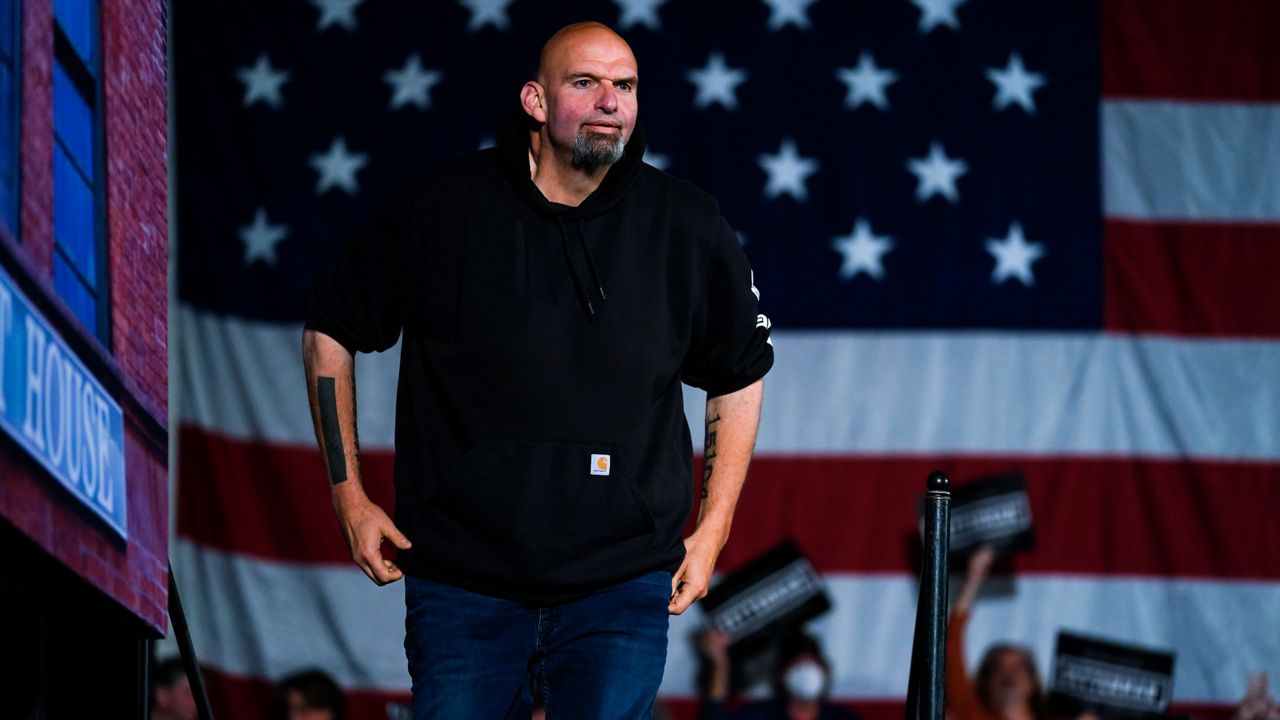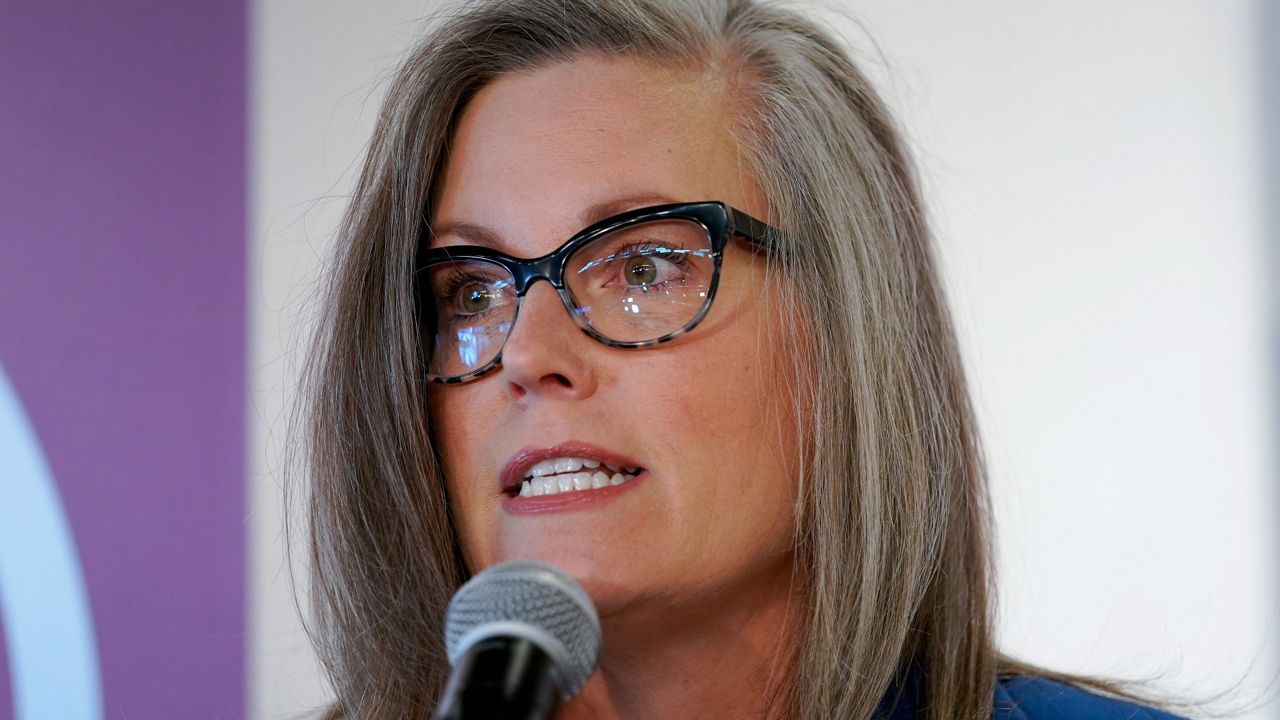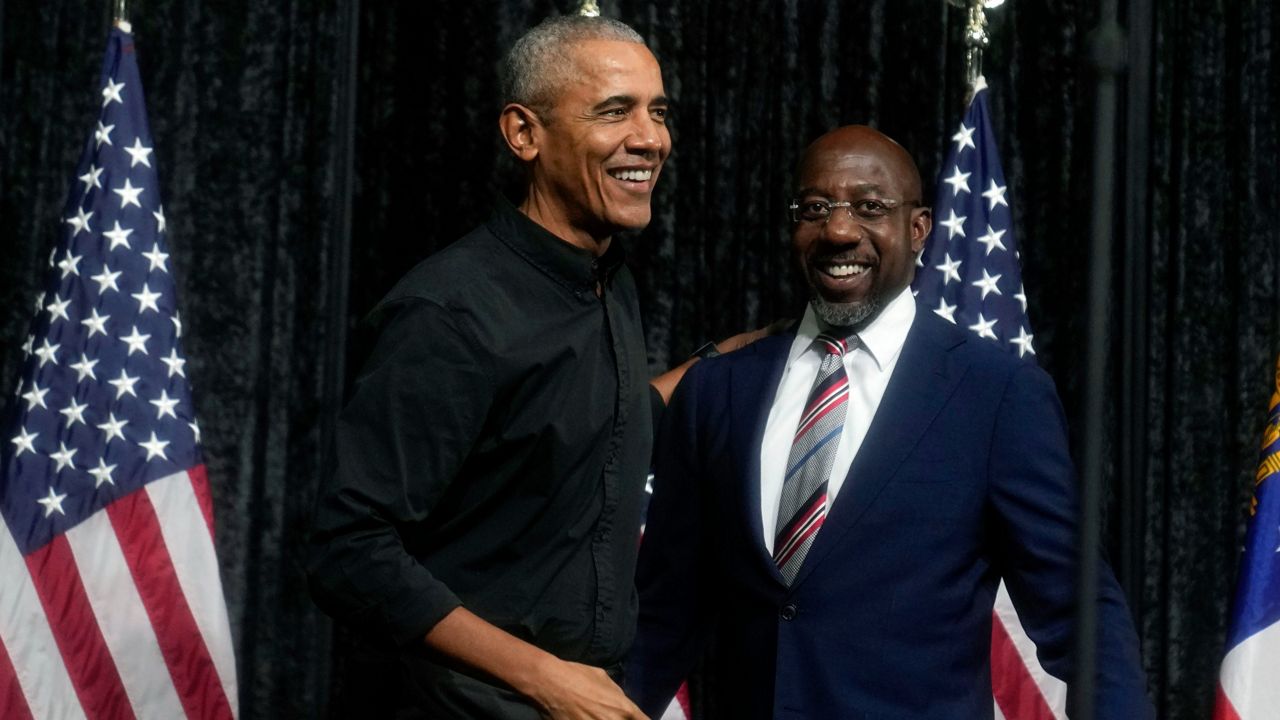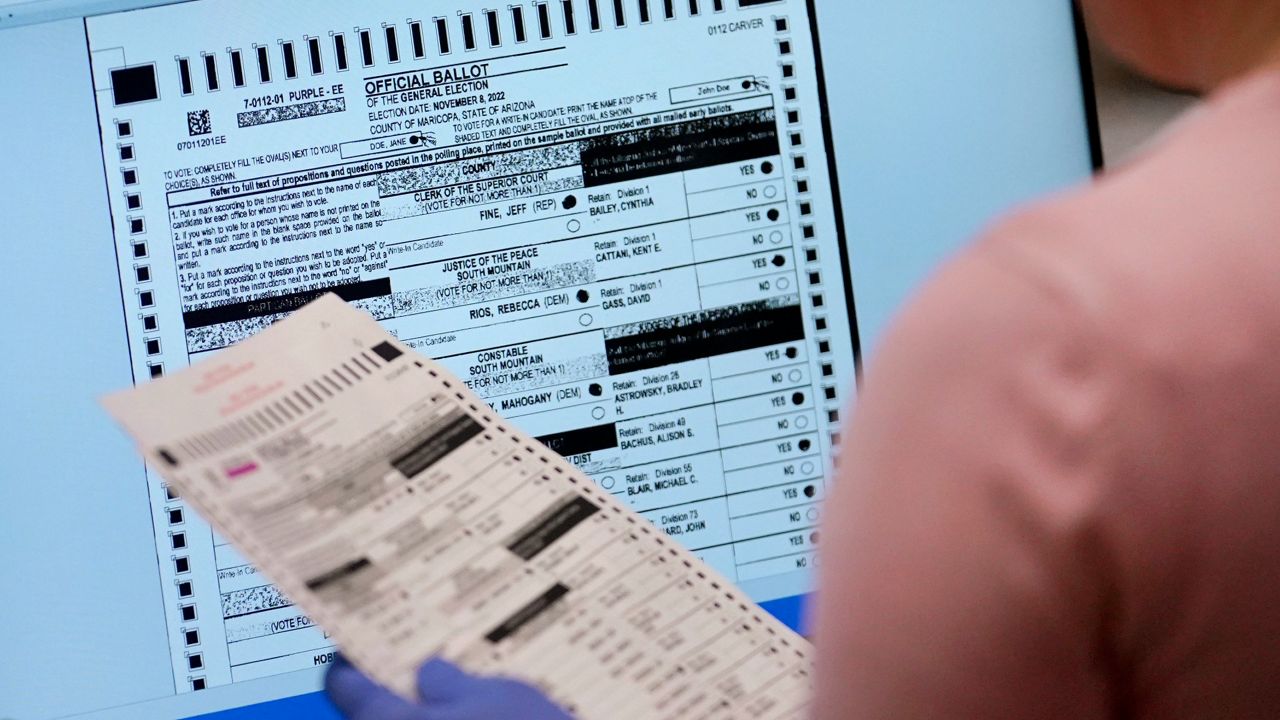NBC News reporter Dasha Burns defended herself Wednesday against criticism over her interview with Pennsylvania U.S. Senate candidate John Fetterman.
The interview was broadcast Tuesday on “NBC Nightly News” largely focused on the Democrat’s health five months after suffering a stroke. The Pennsylvania lieutenant governor, who faces former TV personality Dr. Mehmet Oz, a Republican, next month in the general election, is experiencing auditory-processing and word-retrieval issues but insists he’s fit to serve in Congress.
What You Need To Know
- NBC News reporter Dasha Burns defended herself Wednesday against criticism over her interview with Pennsylvania U.S. Senate candidate John Fetterman
- The interview was broadcast Tuesday on “NBC Nightly News” largely focused on the Democrat’s health five months after suffering a stroke
- Fetterman required a computer monitor with real-time closed captioning for the interview, saying the system helps him precisely understand what someone is saying
- But it was Burns’ comment to anchor Lester Holt just before the interview aired that sparked debate over whether she was accurately describing Fetterman’s mental acuity
Fetterman required a computer monitor with real-time closed captioning for the interview, saying the system helps him precisely understand what someone is saying.
But it was Burns’ comment to anchor Lester Holt just before the interview aired that sparked debate over whether she was accurately describing Fetterman’s mental acuity.
“In small talk before the interview without captioning, it wasn't clear he was understanding our conversation,” Burns said.
Rebecca Traister of New York Magazine and The Cut tweeted that she had recently interview Fetterman and found that his comprehension “is not at all impaired. He understands everything, it’s just that he reads it (which requires extra acuity, I’d argue) and responds in real time.”
Journalist and podcast host Kara Swisher wrote on Twitter: “Sorry to say but I talked to @JohnFetterman for over an hour without stop or any aides and this is just nonsense. Maybe this reporter is just bad at small talk.”
Molly Jong-Fast, another journalist and podcast host, said she, too, recently interviewed Fetterman and “he understood everything I was saying and he was funny.”
Other reporters, however, suggested the interview could damage Fetterman’s election hopes.
New York Times correspondent Jonathan Martin tweeted that it was a “rough clip” for Fetterman and “will only fuel questions about his health.” CBS News White House correspondent Ed O’Keefe called it an “important interview with top Senate contender,” adding, “Will Pennsylvanians be comfortable with someone representing them who had to conduct a TV interview this way?"
Burns responded to the criticism Wednesday, writing on Twitter: “It's possible for two different reporters to have two different experiences w a candidate. Our team was in the room w him & reported what happened in it, as journalists do. Before & after closed captioning was on.
“We were happy to accommodate closed captioning,” she added. “Our reporting did not and should not comment on fitness for office. This is for voters to decide. What we do push for as reporters is transparency. It’s our job. Fetterman sat down and answered our questions. That’s his job.
Meanwhile, the interview and the social media reaction to it, also have drawn accusations of ableism.
In response to O’Keefe’s tweet, Robert Shurm, director of the University of Southern California’s Center for the Political Future, wrote: I thought or hoped we had passed this kind of prejudice.”
Steven Overly, a reporter for Politico who says he, too, has auditory issues, tweeted: “It's perfectly valid to question a candidate's physical and mental fitness for national office. But some of the coverage of John Fetterman's use of closed captioning technology in an interview with NBC News feels a helluva lot like ableism.
“Plenty of people with auditory issues (of which I am one) use closed captioning or other assistive tech at times to hear better. The implication that those people are less capable of understanding or tackling difficult things is patently untrue.”
Ryan Deto, a reporter for the Pittsburgh Tribune-Review, asked on Twitter: “[I]f he needs closed captioning for an extended time moving forward, are we to believe the senate can't accommodate?
“What if a deaf person was elected or a senator became deaf?”
The Fetterman campaign did not immediately respond to an email Wednesday asking if it objected to anything about the NBC News interview. Fetterman tweeted Wednesday morning: “Recovering from a stroke in public isn’t easy. But in January, I’m going to be much better–and Dr. Oz will still be a fraud.”
The interview showed short delays before Fetterman answered questions as he read the captioning from the computer screen. Fetterman also stumbled over some words when answering questions.
Burns asked Fetterman why his campaign had denied NBC News’ requests to see his medical records or interview his doctor. Fetterman said he believes his campaign has been “very transparent” about his condition and that voters can judge for themselves whether he’s fit to serve by watching his campaign stops and interviewers.
In June, Fetterman released a letter from his cardiologist, Dr. Ramesh Chandra, that said the congressional candidate was “taking his recovery and his health very seriously at this time, he should be able to campaign and serve in the U.S. Senate without a problem.”
Fetterman and Oz will square off in a debate Oct. 25, in which Fetterman will use closed-captioning software.
Fetterman has seen his lead in the polls tighten in recent weeks in a closely watched race that could decide which party controls the Senate.
Ryan Chatelain - Digital Media Producer
Ryan Chatelain is a national news digital content producer for Spectrum News and is based in New York City. He has previously covered both news and sports for WFAN Sports Radio, CBS New York, Newsday, amNewYork and The Courier in his home state of Louisiana.








